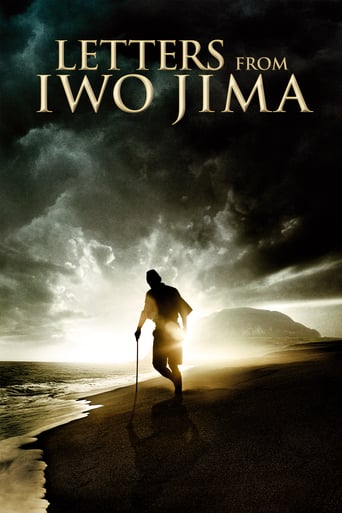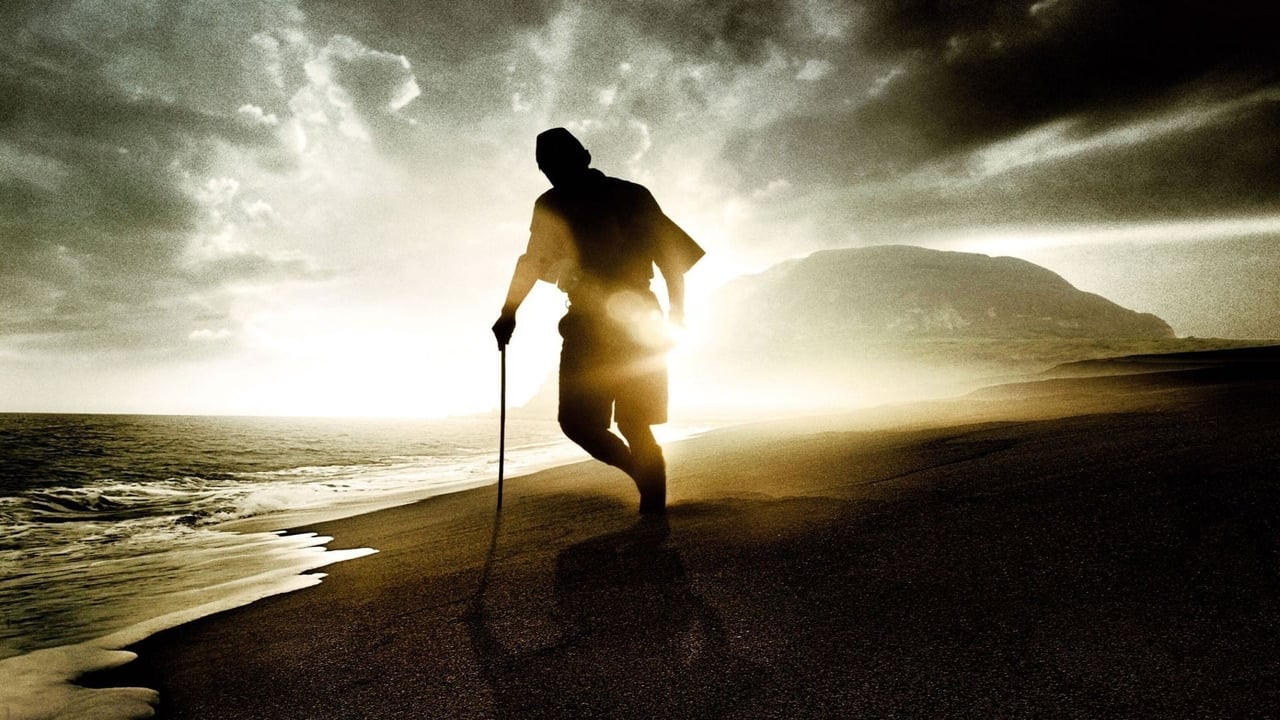Wuchak
RELEASED IN 2006 and directed by Clint Eastwood, "Letters from Iwo Jima" chronicles The Battle of Iwo Jima, which took place February 19–March 26, 1945. Of the approximately 21,000 Japanese entrenched on the island about 18,000 died either from fighting or by ritual suicide. Only 216 were captured during the battle, but close to 3,000 were later found hiding in the caves & tunnels.While this is an American-Japanese co-production, it was written by Japanese and the main cast is entirely Japanese (e.g. Ken Watanabe, Kazunari Ninomiya, Tsuyoshi Ihara, Ryo Kase, etc.). Bitter critics complained that the movie is sympathetic toward the Japanese and their stubborn emperor worship. While it's true that the movie does humanize them despite their renowned brutality during the war, it potently shows the folly of worshipping the martial state and the inevitable ramifications (doom).In theory, Japan's government was a constitutional monarchy during WWII but, in fact, it was a military junta (dictatorship) and therefore totalitarian in nature. The movie effectively shows the harebrained ideology of government-worship and the corresponding misguided "honor" of sacrificing oneself for the malevolent goals of said government. What a waste! "Letters from Iwo Jima" also powerfully details the American threat to the remote isle and its militants. Put simply, these boys came to kick total axx. Their aim was to bomb/shoot/whatever first and ask questions later. If I were there I would've done the same because the Japanese made it clear that this was a fight to the death. I'm actually surprised at how many Japanese POWs were taken (216 but, like I said, almost 3000 were eventually found in the caves & tunnels). By contrast, only 2 Marines were captured by the Japanese, but they died of their wounds while captive.The first 44 minutes are a set-up wherein the characters and their desperate situation on the isle are established before the action starts. From there it gets seriously brutal and increasingly dismal till the climax. For balance, be sure to see Eastwood's companion piece "Flags of Our Fathers," which debuted two months prior.THE MOVIE RUNS 141 minutes and was shot in Barstow & Bakersfield, California, with establishing shots of Iwo Jima. WRITERS: Iris Yamashita (and Paul Haggis) from the books by Tadamichi Kuribayashi & Tsuyoko Yoshido.GRADE: B+/A-
renantesuello
Okay,to be honest I was entertained by this movie, at least the first hour or so. The interaction between the general and the soldiers were executed very well. The young protagonist is a likable fella and has the makings of a great drama actor.The depictions of war though were very awkward and a few scenes were directly ripped off from Saving Private Ryan. Unfortunately, the film is like a comic book, that keeps rebooting its characters. The Japanese imperial troops in the movie are now, in Eastwood's misty vision, simply American farm lads with squinty eyes. They also have a mommy back home who cooks meals for them (aw shucks).Sorry Clint, these imperial soldiers were from a different time period and culture. They were a product of a twisted and barbaric way of thinking. It's called the dark side of patriotism, something you are very familiar with, given that you supervised that jingoist tripe, American Sniper. Frankly, it's very hypocritical. Here, you are making a statement that war is evil but in AS, it's alright, as long as it's made to defend the world from "terrorists".Simply put, most of Clint's directorial efforts are boring and sentimental pieces of junk (maybe with the exception of "A Perfect World"). He was great in Spaghetti westerns and dirty cop roles though.
denis888
What didn't work for Clint Eastwood in his Flags Of Our Fathers, was a tremendous success in this decent sequel, Letters Form Iwo Jima. Absolutely impeccable, precise, laconic and correctly shot in a darker color scheme, this epic movie delivers an awesome array of characters, both Japanese and some American, along with superb camera work and unquestionable masterstroke. Ken Watanabe is one of the real huge star here, his character, General Tadamichi Kuribayashi is a deeply complex and very touching person, who is not a one-dimensional military cruel, but a decent man with sorrows and joys. All others Japanese soldiers and officers are depicted so well and so endearingly honest that we can not resist but like them, even if they served a wrong cause. This is a true touch of genius, and Mr. Eastwood is at his best, top form that is evident all trough 2 quick hours. This is a huge improvement of a first film, and its pristine, perfect quality is a real blast that holds you attentive all the film through. Highly recommended
Filipe Neto
This film recreates the Battle of Iwo Jima from the perspective of Japanese soldiers who fought there. Directed by Clint Eastwood, the film has screenplay by Iris Yamashita and the participation of Ken Watanabe, Tsuyoshi Ihara and Kazunari Ninomiya.This film follows another, "Flags of our Fathers", and isn't just another war film focused on World War II. This film shows the crudeness of war, especially in its psychological and human aspect. It seeks to show that, in war, there are no winners or losers because everyone loses, there are no good guys or bad guys, but survivors. Japan, during this historical period, had a mentality focused on patriotism, honor and worship to victory. For them, losing was less dishonorable than escape, in a militaristic code very similar to what was adopted by the Spartans before. Another point raised by the film, although in a more subtle way, is the wartime advertising: for the Japanese, the enemy was always demonized for instigating soldiers to fight to the end, following the precepts of their militarist philosophy and honor code.The actors were up to the challenge, particularly Ken Watanabe, whose character, General Kuribayashi, represents the contradictions of war: after studying and living in the United States before the war, he was now fighting the Americans and taking advantage of his knowledge of their military tactics to anticipate their movements. The use of Japanese language in the film really helped to make it more genuine and also sounds nice. The photograph, heavy and gray, fits well in a film like this and there are certain scenes when it contributes greatly to its beauty. The costumes and weapons are historically accurate and the special, visual and sound effects have enormous quality. The sound is really good and gives great impact to combat scenes. The soundtrack, written by Kyle Eastwood and Michael Stevens, is very interesting, especially the main theme, with a slightly oriental sounding, like a melancholic wail.I usually don't like a lot of Clint Eastwood movies, but I must say I was impressed with this. It deserves to be seen by all who like a good war movie, action or a movie linked to historical events. If it's true that all those who don't remember History are doomed to repeat it, this movie might help that this never happens again.





 AD
AD




